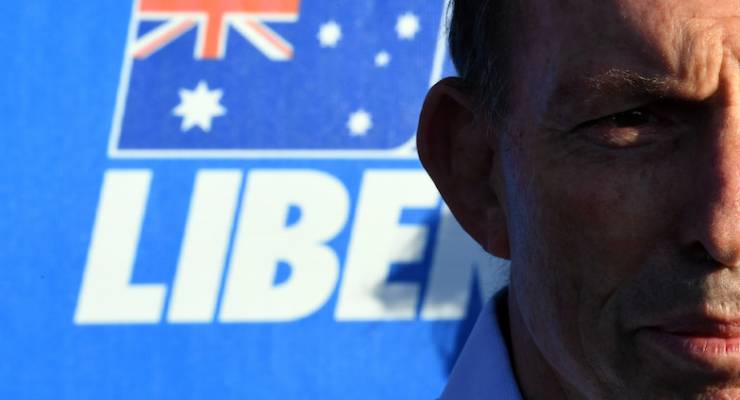
An Inq investigation into a billionaire climate sceptic’s Liberal Party backing speaks to the way Australia’s pitiful political donations regulations “very much run counter to democratic principles”, a political donations expert has told Crikey.
The investigation uncovered that Michael Hintze, a leading free marketeer and sceptic of the role of carbon emissions in climate change, donated $75,000 to former prime minister Tony Abbott’s 2013 election campaign (amongst other Liberal Party support over the years), and has had a long-running business relationship with Energy Minister Angus Taylor.
Both Abbott and Taylor have led Coalition attacks on the idea of government support for renewable energy.
Dr Lindy Edwards, a senior lecturer in politics at UNSW researching political donations, said that political donations to individual candidates speaks not only to a desire to “support that individual in the election, but advance their standing in the party”.
“When individuals are able go bring on board chunks of money, that can give them more clout within the party structure. Targeting individuals [with donations] in that way is also about impacting the internal dynamic of the party itself.
“You could make the case that [the donors] are seeking to promote [that candidate’s] values or views within the structure of the party.”
Neither Crikey nor Edwards is suggesting that these were the motivations behind Hintze’s donations to Abbott.
Australia has some of the weakest federal political donation laws in the world: donations are not capped like they are in many countries and some Australian states (such as NSW and Victoria).
Even so, Edwards told Crikey that a donation of $75,000 is “reasonably significant”.
Banks and large corporations generally donate around $100,000 a year, which is “remarkable … considering how much money is at stake in terms of how much [donors] can gain from favourable access,” Edwards said.
“Yes, it’s not illegal, but it’s not illegal because our system is incredibly bad.”
Inq‘s investigation has prompted outrage from several federal politicians.
Independent federal member for Clark, Andrew Wilkie, said the revelations spoke to the “urgent need for deep political donation reform in Australia”.
Federal Greens MP Adam Bandt told Crikey that “it’s deeply troubling to see climate-denying members of the billionaire class use their wealth to block essential climate action in Australia”.
“Labor and Liberal both accept millions of dollars from the coal, oil and gas industries,” he said. “Money talks and these donations are blocking action on the major cause of the climate crisis — the mining, burning and exporting of coal, oil and gas.
“Minister Taylor already has a questionable track record and it’s extremely concerning to hear of his relationships with Mr Hintze.”
Centre Alliance Senator Stirling Griff said it was concerning that climate-change scpetics were donating to the Liberal Party. “But money has always bought influence and any party who says otherwise is not being truthful,” Stirling told Crikey.
Griff said banning corporate donations and placing a $1000 cap on individual donations to parties would “significantly curtail influence”.
Wilkie also suggested lowering the threshold for donation disclosure, demanding the real-time publication of donations, and expanding the definition of donations to include “any activity that has the effect of benefitting any party or candidate”.
“Australia should also consider going further and adopting public funding of election campaigns and caps on election expenditure,” he said. “Such changes would apply to all donors and rein in the broad range of industries, organisations and people who exert excessive influence on Australian politics and public policy.”
Crikey reached out to the Liberal Party’s state presidents for comment on Inq‘s investigation, but did not receive responses by the time of publication.









Crikey encourages robust conversations on our website. However, we’re a small team, so sometimes we have to reluctantly turn comments off due to legal risk. Thanks for your understanding and in the meantime, have a read of our moderation guidelines.